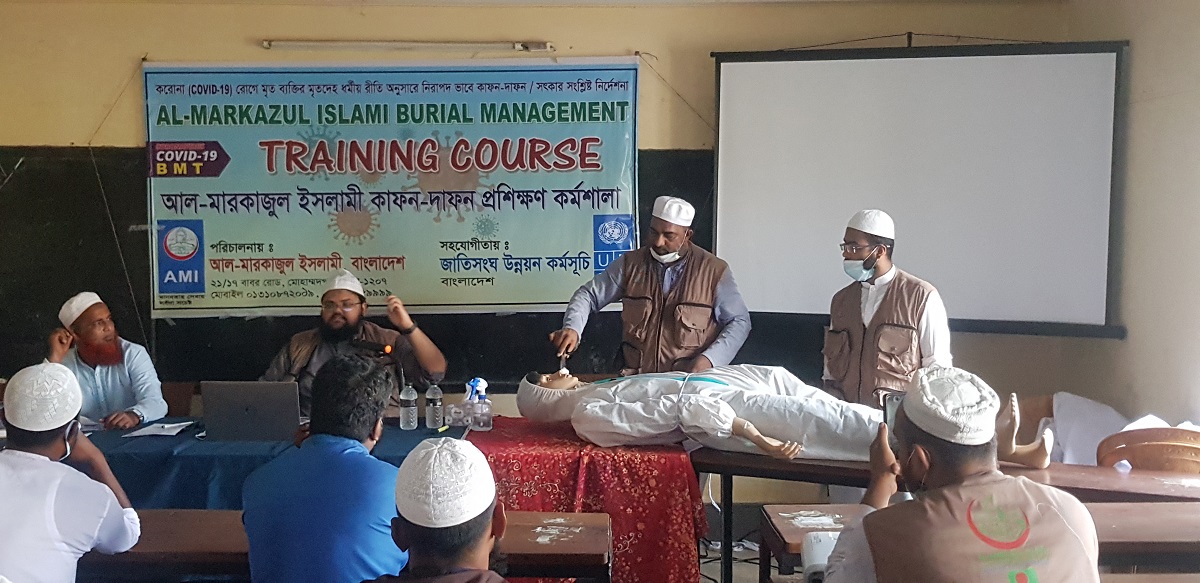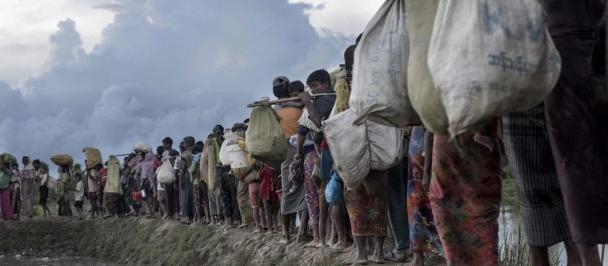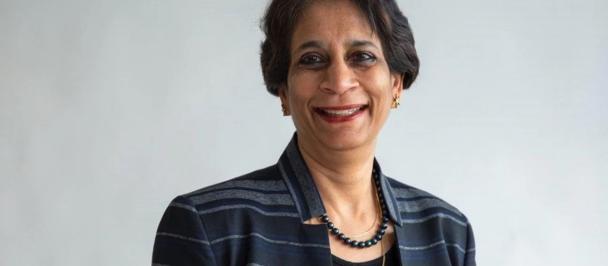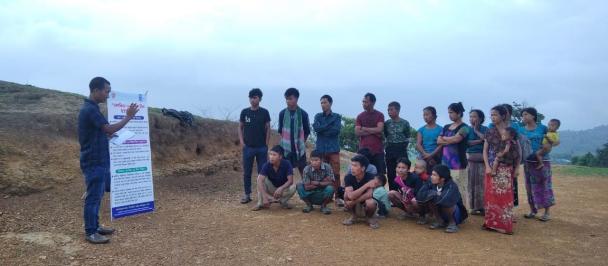The burials of the Covid-19 pandemic
By Abida R Chowdhury
Uncertainty, fear, grief and confusion.
These words represent a fraction of the emotions experienced by humanity as it grappled with the pandemic. For the first time in modern history, cities came to a standstill; offices shut down, so did airports and supermarkets. The pandemic changed everyday life. It also changed how we pay last respects to our loved ones.
When Covid-19 started taking its first victims, many families were left in the lurch trying to arrange final rites for the deceased. In many instances, families left the bodies without a proper burial or cremation in fear of infection.
For those who work in humanitarian aid, this was a time of trials and tribulations. These are stories of overcoming great odds and crossing religious boundaries in a nation divided along communal lines, helping families a scope to give their loved ones a last respectable farewell.
United Nations Development Programme and Al-Markazul Islami (AMI), a local social organisation, joined hands to fight the stigma surrounding the final rites of Covid-19 victims. Their collaboration allowed AMI to bury and cremate over 6,500 Covid-19 victims across the country. UNDP supported through cash grants and equipping the volunteers with proper gear.
The partnership between UNDP and AMI remains crucial as the onslaught of Covid-19 continues with the world now trying to cope with a new variant, Omicron. As of January 17, 2022, the positivity rate in Bangladesh has crossed the 20 per cent mark.
The story of AMI's brave frontliners
To ensure a proper burial for the Covid-19 deceased, AMI enlisted the help of volunteers. Satkhira's Absar Ahmed Khan and his wife Aysha Khan are two such people. They reached out to AMI's coordinator Hamza Khan for a quickly arranged training.
Earlier in Dhaka, the Directorate General of Health Services (DGHS) authorities reached out to AMI for assistance in the burials of Covid-19 deceased. But they were given only five PPEs.
During AMI's first burial, media members were milling around, worrying the team of their ill-preparedness.
Owing to the partnership, volunteers had adequate PPEs, sanitisers and other logistic support for a safe burial or cremation.
"The civil surgeon of Satkhira called me at 1:30 am to arrange for the burial of a Covid-19 deceased, and we responded duly," says Absar while talking about their relentless efforts to provide help.
Absar's work even earned him recognition from PM Sheikh Hasina.
"The DC said there was a Hindu person who needed to be cremated. We immediately took an ambulance to take the body to the man's village. When I stepped down in full PPE, locals barricaded me saying that I was coronavirus. At one point, we had to call in law enforcement," says Absar.
A lot has changed since then, thanks to widespread awareness by the Bangladesh government.
Volunteers in over 11 City Corporations received training, cash grants, proper equipment, and each of them chanced upon their calling differently.
"We saw the different ways in which people were suggesting for burial or cremation of Covid-19 deceased. Following a conversation with community members, we decided to take on this task to ensure a respectable funeral for the Covid-19 deceased," says Abdullah Sadek, Kishoreganj's team leader of AMI.
AMI and its volunteers managed to achieve the impossible in a nation often divided along religious lines. Underneath their PPEs, the volunteers are more often than not dressed in their Islamic attire, reflecting their ideology. Yet, they did not differentiate when it came to helping those in need.
Since the pandemic, AMI was recognised as one of GoB's enlisted leading front-line organisations in managing Covid-19 deceased.
The efforts to arrange last rites for the deceased in an Islamic manner and for members of Hindu, Christian or Buddhist religious groups was not all smooth sailing.
As my conversation with the volunteers of AMI came to an end, Mr Hamza ended with a distressing story. "There was a young journalist who died of Covid-19. Her family lived in Dhaka. Back then, the government did not hand over the bodies of Covid-19 deceased to the families, so they requested us to arrange for the body to be handed over. We helped them with that. A week later, we received a message on Facebook asking for help. We looked into the matter and found out that villagers captured and locked the deceased's family in a house since the burial. Locals believed the family was infected with coronavirus and would spread it to the rest of them. Those who were trapped inside had run out of food and water. We immediately contacted the civil surgeon and sent a bag of rice, daal and other dry foods," says Hamza.

 Locations
Locations


